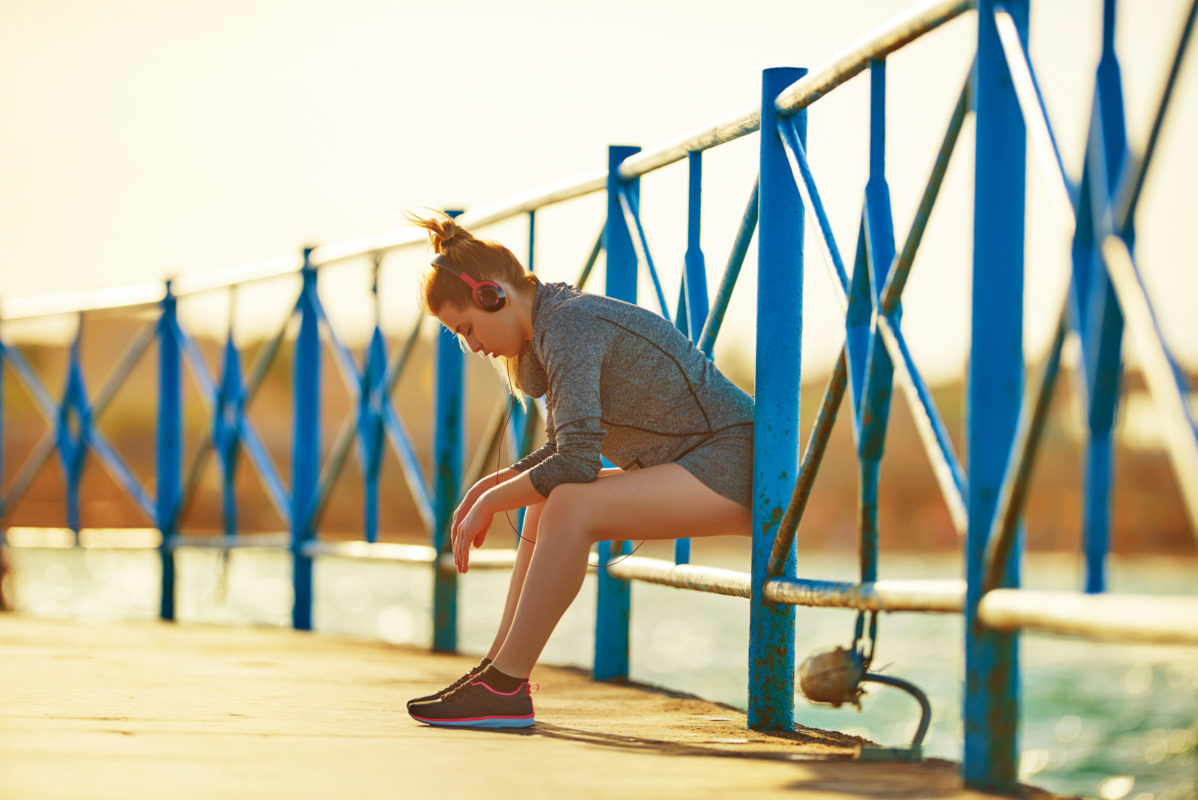Spring and fall allergies in Tennessee can be intense. The Asthma and Allergy Foundation of America reports that all 4 of Tennessee’s largest cities are in the top 100 most challenging places to live with allergies:
- Memphis: 15
- Knoxville: 29
- Chattanooga: 51
- Nashville: 70
While symptoms range from annoying to dangerous, allergies can make exercising outside challenging.
Here’s what you need to know about allergies to stay safe while exercising outdoors in Tennessee.
What are allergies?
Allergies are an overreaction of the immune system to substances that don’t affect most people. Common symptoms include sneezing, coughing, itching, watery eyes, rash or shortness of breath. Allergies often occur with asthma, a chronic lung disease with episodes brought on by a viral infection, exercise or environmental triggers such as pollen, tobacco smoke, air pollution or mold.
What allergies affect people outdoors most?
The most common allergy triggers outside are:
- Mold, ragweed and pollen (tree and grass)
- Insect bites (bees, hornets, wasps, yellow jackets, fire ants)
The most common reactions to these triggers are:
- Asthma
- Eczema (red, itchy skin)
- Hay fever (itchy, watery eyes; sneezing)
- Sinus infection
If you think you may suffer from allergies, your doctor can test you to identify the substances you’re allergic to, which is the first step to treating them. Treatment often includes avoidance, medication or immunotherapy (these “allergy shot” treatments train your immune system not to overreact).
How do people with allergies exercise safely outside?
Whether you’re clinically diagnosed with allergies or you just find yourself having difficulty exercising outdoors in the spring and fall, there are steps you can take to lessen the symptoms.
1. Check allergen counts and the weather
There are websites that track pollen counts for trees, mold, weeds and grass. Visit the American Academy of Allergy, Asthma & Immunology to see the latest counts, and consider an indoor activity such as swimming, weight-lifting or yoga on days when counts for your allergens are high.
You may also want to avoid outdoor exercise on dry, warm, windy days as pollen levels will be higher, or on humid days which can make it harder to breathe. On the other hand, if it just rained, that’s a great time to exercise outdoors because rain washes away many allergens.
2. Time your workout right
Exercise at the time of day when your allergen levels are lower.
For example:
- Ragweed typically peaks early, so exercise after work
- Grass pollen peaks late afternoon/early evening, so try morning workouts
- If you live in a city, winds cause pollen to peak midday, so exercise in the morning or at night
3. Wear and wash
If you have to exercise outdoors during times your allergens are high, wear a face mask. When you get home, shower and rinse your nose with saline to get rid of any particles that get through.
4. Ask about medication
Talk to your doctor about over-the-counter and prescription options.
- Nose sprays may make it easier for people with certain allergens to spend time outdoors.
- If you are prescribed medication, don’t wait until allergy season or until you have symptoms to take it.
- If you’re taking medication and still feel tired or “off” after exercising outdoors, consider working out indoors when allergens are high.
To learn more about how the air inside your home affects your health, click here.
BlueCross BlueShield of Tennessee members can access wellness-related discounts through Blue365®. BCBST members can also use tools and resources to help improve health and well-being by logging into BlueAccess and going to the in the Member Wellness Center under the Managing Your Health tab.
Get more information about specific health terms, topics and conditions to better manage your health on bcbst.com. BlueCross BlueShield of Tennessee members can access wellness-related discounts on fitness products, gym memberships, healthy eating and more through Blue365®. BCBST members can also find tools and resources to help improve health and well-being by logging into BlueAccess and going to the Managing Your Health tab.





